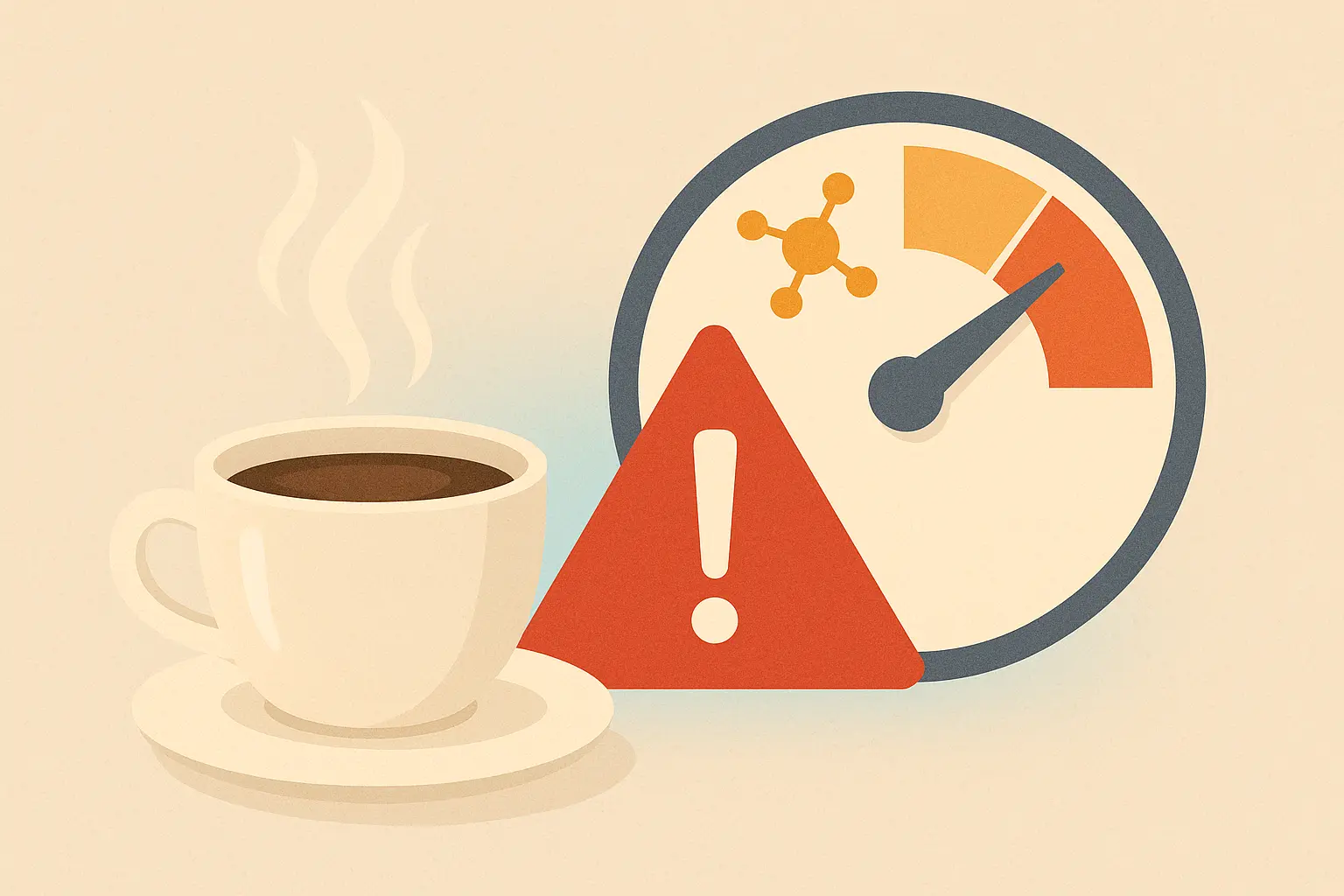Recommended Daily Limits

According to the European Food Safety Authority (EFSA) and the U.S. Food and Drug Administration (FDA), the following caffeine intake levels are considered safe:
Dangerous Levels of Caffeine
Research indicates the following thresholds for caffeine toxicity:
Symptoms of Caffeine Overdose
Clinical studies have identified these common symptoms of caffeine overdose (Kerrigan & Lindsey, 2005)[3]:
- Rapid heartbeat (tachycardia)
- Anxiety and restlessness
- Insomnia
- Headaches
- Dizziness
- Dehydration
- Nausea
- Muscle tremors
Factors Affecting Caffeine Sensitivity
Research has identified several key factors that influence caffeine metabolism and effects (Nehlig, 2018)[4]:
- Body weight and metabolism (CYP1A2 enzyme activity)
- Regular caffeine consumption (tolerance development)
- Age and health conditions
- Medications and supplements (drug interactions)
- Genetic factors (CYP1A2 gene polymorphisms)
Safe Consumption Tips
Based on clinical research (Temple et al., 2017)[2], these practices can help maintain safe caffeine consumption:
- Track your daily intake
- Space out consumption throughout the day
- Stay hydrated
- Be mindful of hidden caffeine sources
- Listen to your body's signals
When to Seek Medical Help
According to clinical guidelines (Kerrigan & Lindsey, 2005)[3], seek immediate medical attention if you experience:
- Severe chest pain
- Difficulty breathing
- Seizures
- Severe confusion
- Vomiting that won't stop
Calculate Your Caffeine Intake
Use our caffeine calculator to understand how matcha affects your daily caffeine levels and when it's best to consume it.
Try the Calculator